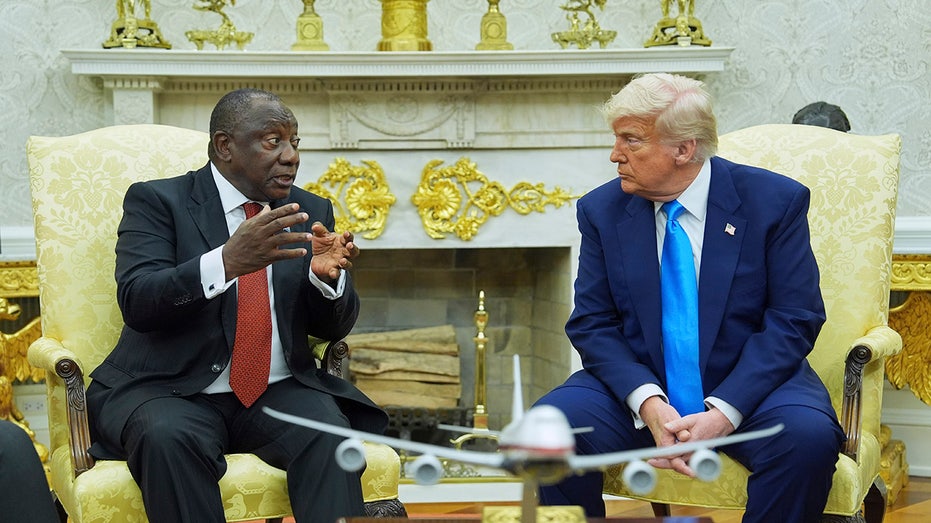Trump's South Africa Claims Debunked: Ramaphosa Pushes Back Against Arrest Demand
In a tense exchange at the White House, South African President Cyril Ramaphosa rebuked President Donald Trump's demand to arrest opposition politician Julius Malema over a chant calling for violence against white farmers. But was Trump's outrage justified, or was it based on misinformation?
Trump confronted Ramaphosa with a video showing Malema chanting "kill the farmer" and claimed it was evidence of widespread violence against white South Africans. However, an investigation by BBC Verify revealed that the footage was taken from a protest against the murder of a white farming couple in 2020, and the crosses shown were a temporary memorial, not a burial site. Trump's claim of "over a thousand" white farmers being killed was also disputed, with many of the claims of violence against the white minority being demonstrably false.
The issue of farm violence in South Africa has been a contentious one, with some claiming it amounts to genocide. However, fact-checking organizations and experts have disputed these claims, pointing out that the vast majority of farm murders are committed during robberies or other criminal activities, rather than as part of a targeted campaign against white South Africans. Trump's administration has been criticized for amplifying these claims, with supporters like Elon Musk and Tucker Carlson also perpetuating the narrative.
CONTEXT AND BACKGROUND INFORMATION (CONTINUED):
The meeting between Trump and Ramaphosa was initially cordial, but quickly turned tense as Trump presented the South African president with copies of articles purporting to show widespread brutality against white South Africans. Ramaphosa hit back, saying that the South African government takes all cases of violence seriously, regardless of the race of the victims. A senior South African government official told Fox News Digital that the chant "inflamed hatred" and called for "legal consequences," but did not provide further details.
The incident highlights the dangers of misinformation and the need for fact-based reporting. It also underscores the complexities of South Africa's history and the ongoing struggles of its people, regardless of race. As the world grapples with issues of racism and xenophobia, it is crucial that leaders and media outlets approach these topics with nuance and accuracy, rather than relying on sensationalism and unverified claims.
